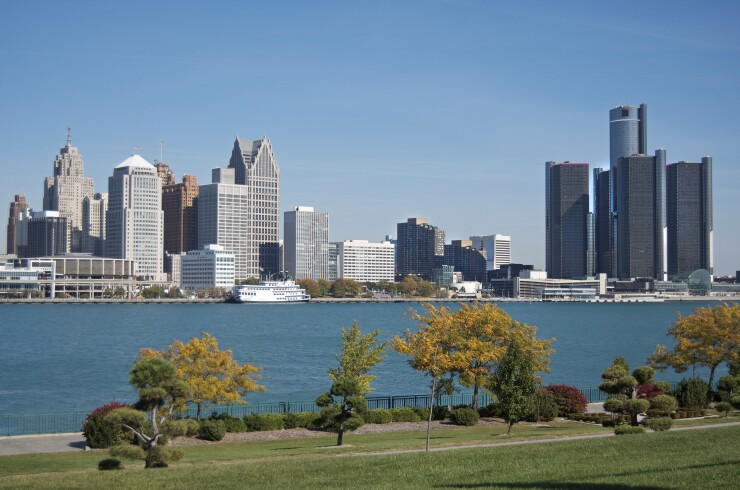Detroit's residential property values have risen for the first time in at least 17 years, city officials announced, with nearly 60% of residents seeing their 2018 assessments increase.
"This is another sign of progress," Mayor Mike Duggan said in a statement. "We still have a long way to go to in rebuilding our property values, but the fact that we have halted such a long, steep decline is a significant milestone. This also corresponds with the significant increase in home sale prices we have seen in neighborhoods across the city."
The median sale price for Detroit homes in December 2017 was $30,000, according to data from Farmington Hills-based Realcomp Ltd. II.
Officials noted in a release that, for years, the Office of the Assessor had reduced assessments to account for the loss in value of properties in Detroit.
In 2008, with the the nation in the middle of a recession, the city's cumulative assessed value of all residential properties was $8.8 billion. That decline continued, with the number last year at $2.8 billion. This year, the assessed value of residential properties rose slightly to $3 billion.

Thirty-one percent of the city's residential properties, or 81,559 parcels, saw between a 0.1% and 5% increase in their assessments.
At least 4% saw their assessments rise between 15% and 21%.
Detroit's deputy chief financial officer and assessor, Alvin Horhn, said an owner of a home with an assessed value at $100,000, on average, might expect to see an increase in their taxes this year of about $67.
But some properties saw a decrease in assessments, including 42,095 parcels, which saw between 0.2% and 4.1% drop.
CFO John Hill said the city has seen an increased number of residents paying their property taxes with collections rising from an average of 69% in 2012-14 to a projected 82% rate for 2017.
"With residents continuing to receiving fair assessments, we hope to see an increase in the number of homeowners who pay their full taxes," Hill said. "In the near term, we expect this move to keep more tax-paying residents in the city. In the long term, we believe it will help to bring in more new homeowners and help to continue growing our residential tax base."
Detroit's commercial properties also saw an increase in value to nearly $3 billion, and industrial properties reversed from a drop last year, rising from $314 million to $513 million, according to the release.




